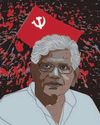
LOST HOPE Migrant labourers leaving Delhi
JOGINDER PAL never thought he would have to go back. He had come to Delhi 18 years ago, escaping the drought-hit Banda district in Uttar Pradesh. In the capital, he found work as a painter, got married and had two children.
Then came 2020. His work was hit twice. First came the Delhi riots, and then the lockdown. Exasperated, he returned home. “I don’t know when I will come back,” he said.
With no jobs, paucity of ration and disease-induced fear, migrant workers started returning to their villages on March 25, the first day of the lockdown. Despite government assurances, the workers started their journeys, mostly on foot.
The government belatedly started special trains for workers across the country. These carried more than five lakh people in the first 10 days of operation. Of the 363 trains, till May 11, the maximum were to Uttar Pradesh (172), followed by Bihar (100), Madhya Pradesh (30), Odisha (25) and Jharkhand (22). Now, the home ministry has asked the railways to run at least 100 trains every day, each carrying 1,700 workers home.
Migrants make up more than 40 per cent of Delhi’s population. Over- all, the metros have been the worst hit, and millions like Joginder realise this. The political class and the bureaucracy were taken by surprise when the migrants left the impersonal, often cruel, urban spaces to find solace in their villages.
“Migrants get economic security in the city and social security—of the family and of public assistance—in their villages,” said Chinmay Tumbe, assistant professor, IIM Ahmedabad. “Instant flight occurs when economic security vanishes and migrants seek social security.”
Denne historien er fra May 24, 2020-utgaven av THE WEEK.
Start din 7-dagers gratis prøveperiode på Magzter GOLD for å få tilgang til tusenvis av utvalgte premiumhistorier og 9000+ magasiner og aviser.
Allerede abonnent ? Logg på
Denne historien er fra May 24, 2020-utgaven av THE WEEK.
Start din 7-dagers gratis prøveperiode på Magzter GOLD for å få tilgang til tusenvis av utvalgte premiumhistorier og 9000+ magasiner og aviser.
Allerede abonnent? Logg på

A golden girl
One of India's most formidable beauties passed away earlier this month. The odd thing is she would absolutely hate this obituary; she hated being written about and avoided publicity for all of her nine decades. Indira Aswani was 93 when she died. But anyone who encountered her, even briefly, was in such awe of her grace and poise, and one could not but remember her forever.

The interest in wine is growing delightfully in India
The renowned British wine writer and television presenter Jancis Robinson, 74, recently came to Delhi and Mumbai to reacquaint herself with India's wine industry. This was the Robinson's fourth visit to India; the last one was seven years ago. On this trip, Robinson and her husband, restaurateur Nicholas Lander, were hosted by the Taj Hotels and Sonal Holland, India's only Master of Wine.

United in the states
Indian-Americans coming together under the Democratic umbrella could get Harris over the line in key battlegrounds

COVER DRIVE
Usage-driven motor insurance policies offer several benefits

GDP as the only measure of progress is illogical
Dasho Karma Ura, one of the world's leading happiness experts, has guided Bhutan's unique gross national happiness (GNH) project. He uses empirical data to show that money cannot buy happiness in all circumstances, rather it is family and health that have the strongest positive effect on happiness. Excerpts from an interview:

India is not a controlling big brother
Prime Minister Tshering Tobgay considers India a benevolent elder sibling as the \"big brotherly attitude\" is happily missing from bilateral ties. He thinks the relationship shared by the two countries has become a model of friendship not just for the region, but for the entire world. \"India's attitude is definitely not of a big brother who is controlling and does not allow the little brother to blossom and grow,\" says Tobgay in an exclusive interview with THE WEEK.

Comrade with no foes
Lal Salaam, Comrade Yechury-you were quite a guy!

Pinning down saffron
In her first political bout, Vinesh Phogat rides on the anti-BJP sentiment across Haryana

MAKE IN MANIPUR
Home-made rockets and weapons from across the border are escalating the conflict

SAHEB LOSES STEAM
Coalition dynamics and poor electoral prospects continue to diminish Ajit Pawar's political stock